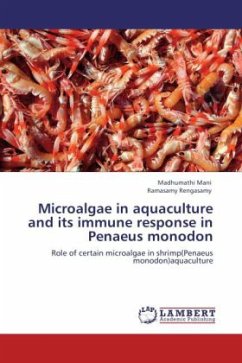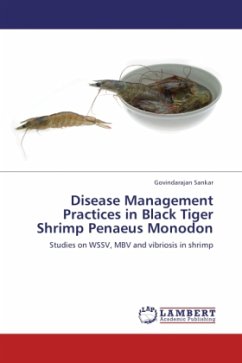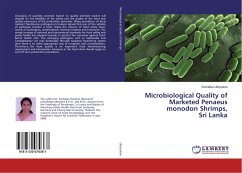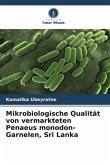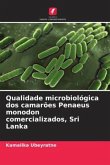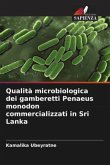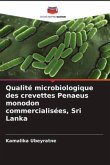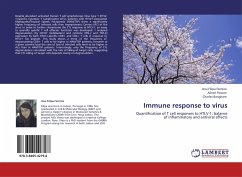Aquaculture represents one of the fast growing food producing sectors. Sustainable production of shrimp depends on the rearing techniques involving algae. As far as the aquaculture is concerned, use of the diatoms and green algae are of greater importance. The dietary carotenoids obtained from algal sources showed greater impact on nutritive value of shrimp. This may lead to another new application for algae in aquaculture diets. As the work concise of the antioxidant enzymes, the SOD and catalase of WSSV infected P. monodon showed lower activities than the healthy shrimp (without WSSV infection). Whereas the antioxidant enzymes of Haemolymph of WSSV infected P. monodon fed with D. salina incorporated diet showed a slightly less activity when compared to the shrimp fed with D. salina without WSSV infection. Like wise the catalase assay in muscle of WSSV infected P. monodon fed with D. salina cells showed low activity. The book deals with the results indicated that the shrimp fed with D. salina incorporated diet showed a slightly enhancement in immune resistance towards WSSV infected P. monodon.
Bitte wählen Sie Ihr Anliegen aus.
Rechnungen
Retourenschein anfordern
Bestellstatus
Storno

